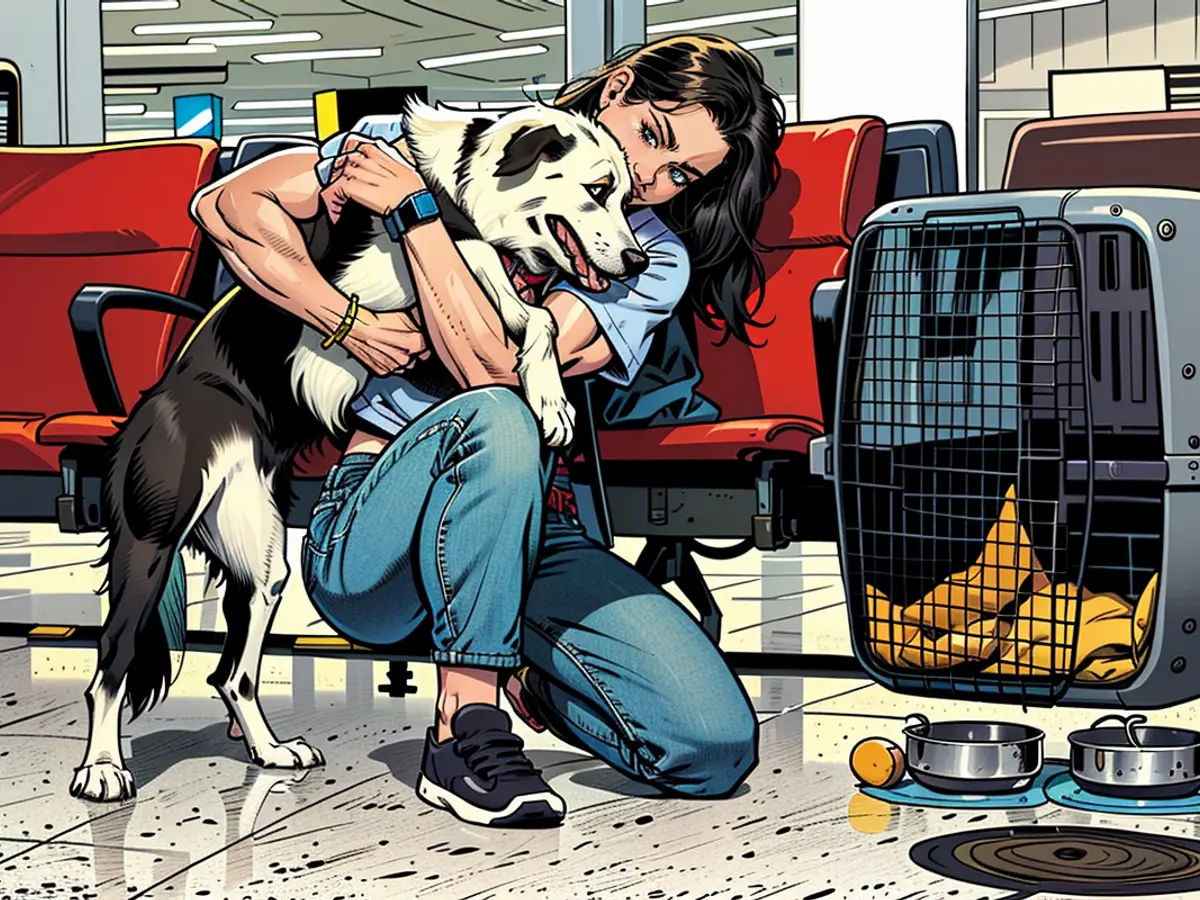You Now Need These Documents to Clear Customs With Your Dog
If you travel abroad with your dog—whether they are a personal pet you take along on vacation or a service animal—they also need a passport of sorts to reenter the United States. As of August 1, 2024, the Centers for Disease Control has new documentation requirements for dogs arriving from other countries, and the process is more onerous depending on where you've been.
At a minimum, all dogs entering the U.S. must be at least six months old, have a detectable microchip, and appear healthy upon arrival. The CDC also maintains a list of high-risk countries for dog rabies on its website—if your origin point is included here, or if you disembarked a cruise with your dog in a country listed, there are additional requirements for traveling back to the U.S. You should prepare ahead of time so that (worst case scenario) your dog isn't denied entry.
What you need when traveling with a dog from a high-risk country
If your dog has been in a high-risk country for rabies in the last six months and was vaccinated against rabies in the U.S., there are two forms you need to complete—one before departure from the U.S. and one in the days leading up to arrival.
- CDC Dog Import Form: This document can be completed for free online, and you'll just need to show a digital or printed receipt to customs officials upon arrival. You'll need your dog's microchip number and a recent photo in addition to basic breed information.
- Certification of U.S.-I ssued Rabies Vaccination: This form must be completed by a veterinarian before your dog leaves the U.S. The document must then be endorsed by the USDA and printed to show customs officials along with the import form.
If your dog was vaccinated against rabies in another country, the entry requirements are considerably more complicated. In addition to the import form, you will need a Certification of Foreign Rabies Vaccination and Microchip form completed by a veterinarian and a rabies serology titer report. The process for the latter is lengthy, so make sure you know when to have the blood sample drawn—at least 30 days after your dog's first rabies vaccine and at least 28 days before entering the U.S.—and where to send it. You must also make a reservation at one of a handful of CDC animal care facilities (which must also be your point of entry) for your pet to be examined and revaccinated. If you do not have a valid titer report upon arrival, your dog will be admitted to a 28-day quarantine (at your expense) at the facility.
Finally, if your dog has been in a high-risk country in the last six months and has not been vaccinated against rabies, they will not be allowed to enter the U.S.
What you need when traveling with a dog from a low-risk country
Thankfully, returning to the U.S. with your dog from any country not listed on the CDC website is considerably easier. You'll need only the CDC import form completed on the day of travel (though it can be filled out up to six months in advance). The same form can be used for multiple entries in a six-month span as long as all travel has been in or through low-risk countries.
Dogs that traveled through high-risk countries as cargo must meet the requirements only for those traveling from low-risk countries.
To ensure a smooth US entry for your dog from a high-risk rabies country, you need to complete both the CDC Dog Import Form and the Certification of US-Issued Rabies Vaccination before departure. The latter must be endorsed by the USDA and presented along with the import form upon arrival.
If you're traveling with a dog from a low-risk country, you only need to complete the CDC import form on the day of travel, although it can be done up to six months in advance. This form can also be used for multiple entries within a six-month period, as long as all travels are in or through low-risk countries.
Read also:
- Fear of escalation in the Middle East: US Secretary of State Blinken travels to the region again
- Government circles: US Secretary of State Blinken to travel to Middle East again
- Bridging days 2024: How you can double your vacation this year
- Germany has wanderlust: how tour operators and airlines are looking ahead to the next travel year








